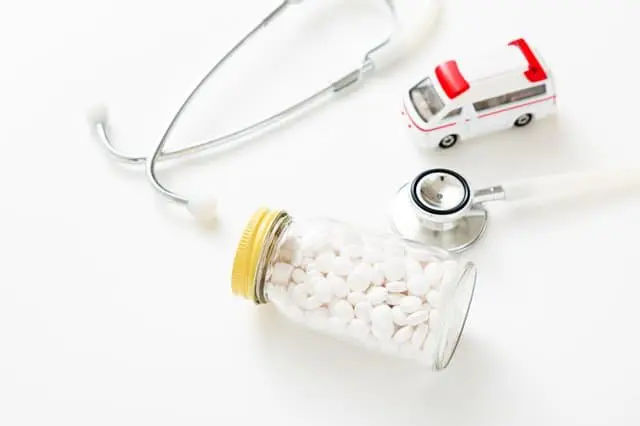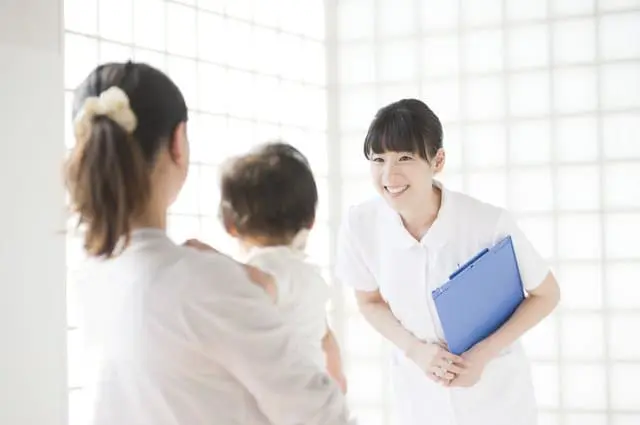Japanese Hospitals And Clinics: Where To Go When You Get Sick

There are several types of medical facilities in Japan, ranging from clinics to healthcare units in hospitals. This article introduces the differences between Japanese clinics and hospitals and explains which clinical department to visit depending on symptoms.
Japanese Hospitals and Clinics
There are several types of medical facilities in Japan, including university hospitals, general hospitals, and clinics. Each establishment serves a different purpose and they come in all sizes.
Unlike countries with general practitioners providing primary care, patients in Japan must first choose which medical department to consult.
If you're new to Japan, it may be difficult deciding where to go when you have a stomachache or a sudden injury. This article introduces the various types of medical facilities and suggest where to go depending on the symptoms and urgency.
What Is the Difference Between a Hospital and Clinic?

Photo by PIXTA
There are two types of medical facilities where patients can receive a physical examination: a hospital and a clinic.
| Facility | Features | Treatments |
| Clinic, Medical Office | 19 beds or less | ・Offers treatment for minor illness and injuries. ・Medical treatment of chronic diseases. |
| Hospital (National/General/ University) |
More than 20 beds and various medical departments | Conducts specialized medical treatments and operations. |
A clinic (medical office/doctor's office) is a small-sized facility. There are typically 19 beds or less, and patients with minor or chronic illness and injuries receive medical attention here.
Most clinics specialize in treating particular symptoms, such as internal medicine (naika) or an OB-GYN (san-fujinka). Therefore, patients must decide which clinic to visit when seeking care. The different medical specializations are described in detail below.
A hospital is a mid- to large-scale facility equipped with more than 20 beds and consists of various departments. There are mainly three types of hospitals: national, general, and university hospitals.
These institutions offer specialized examinations and conduct operations as well. Some patients, depending on the severity of their symptoms, are transferred from a clinic to a hospital with a referral letter.
Which Department to Visit for Medical Treatment?

Photo by PIXTA
Check the list below to determine which medical department to visit in the case of a stomachache, puffy eyes, or a leg fracture.
| Department | Features | Symptoms |
| Internal Medicine (Naika) | Treatment by prescribing medication | Cold, influenza, headache, stomachache, allergies, and minor injuries that do not require surgery. |
| Surgery (Geka) | Treatment by operation | Performs various types of surgery on patients diagnosed in the internal medicine department. |
| Otolaryngology (Jibi-inko-ka) | Treats illnesses of the ear, nose, and throat | Cough, sore throat, runny nose, dizziness, auditory disorders, etc. |
| Pediatrics (Shonika) | Treats infants and children up to 15 years of age | Colds, itchy skin, allergies, and symptoms requiring surgery. |
| Orthopedics (Seikei-geka) | Treats injuries related to the skeleton, muscles, and ligaments | Sprains, fractures, herniated disks, etc. |
| Ophthalmology (Ganka) | Treatment for eye diseases | In addition to treating itchy and painful eyes, it offers visual acuity tests, LASIK treatment, etc. |
| Dermatology (Hifuka) | Treats skin symptoms and diseases | Eczema, acne, rashes, burns, etc. |
| Ob-Gyn (San-fujinka) | Provides medical care for pregnancy and the female reproductive system | Check-ups for pregnant women, menstrual pain, prescription of birth-control pills, etc. |
| Dentistry (Shika) | Provides dental care | Cavities, implants, prevention of tooth decay and periodontal diseases, etc. |
Those experiencing general symptoms, such as a stomachache or fever, should seek treatment by an internal medicine (naika) physician. If you're unsure about which specialist to visit, it's still advised to first head to an internal medicine department.
Where to Go When Sick?

Photo by PIXTA
As mentioned above, there are various medical facilities and departments—both large and small—in Japan. However, physicians will be unable to correctly diagnose patients' health conditions if they continue changing hospitals.
To prevent this type of situation, the Japanese Ministry of Health, Labour, and Welfare recommends citizens to consult with a family doctor when experiencing mild symptoms.
It's a good idea to have a local clinic where you can easily visit a doctor in your neighborhood. There are no specific requirements for a family doctor, so it's advised to ask about clinics in your immediate vicinity.
Find Peace of Mind by Planning Ahead

Photo by PIXTA
If you've recently moved to Japan, you might be worried about where to go when you get sick.
Finding a family doctor in your neighborhood, however, will lessen this anxiety if you ever require medical care.
Read also
Main image by Pixta




































![[Kagoshima] Overcoming 12 Years of Hardship: Walking through Minamisatsuma City, the sacred land where the monk Ganjin landed](https://resources.matcha-jp.com/resize/720x2000/2026/02/21-259481.webp)



